Evropský čtvrtek ve Skauťáku s Pavlínou Žákovou
Kino Europa: Slyšíš mě? | Promítání s debatou
Transatlantic After Hours: Next Gen in Spotlight?

Cizí jazyky a jazykové profese v éře umělé inteligence
Konference | Platformová revoluce: Utváření budoucnosti práce v EU a zemích západního Balkánu
O Institutu EUROPEUM
EUROPEUM je nezávislý think-tank zaměřený na evropský integrační proces. Provádíme původní výzkum a organizujeme veřejné aktivity. Dále formulujeme nové myšlenky a doporučení ke zlepšení domácí a evropské politiky.
Události
Pořádáme pravidelné semináře, debaty, konference, workshopy a kulaté stoly zaměřené na aktuální evropská témata.
Projekty
Naše dlouhodobé projekty pomáhají zvyšovat povědomí o Evropské unii a posilují mezinárodní spolupráci.
Články
Náš výzkumný tým publikuje články reagující na témata spojená (nejen) s evropskou integrací.
Události
Pořádáme pravidelné semináře, debaty, konference, workshopy a kulaté stoly zaměřené na aktuální evropská témata.
Projekty
Naše dlouhodobé projekty pomáhají zvyšovat povědomí o Evropské unii a posilují mezinárodní spolupráci.
Články
Náš výzkumný tým publikuje články reagující na témata spojená (nejen) s evropskou integrací.


Klima fórum: Jaká je budoucnost pracovního trhu v Moravskoslezském kraji? A jak se na ni připravit?

Evropský čtvrtek ve Skauťáku s Pavlínou Žákovou

Veřejná diskuse | Co dělat ve světě, kde jsou spolehlivé hlasy umlčovány?

Ukrajinské reformy a česká zkušenost: co by mohlo Česko poradit Ukrajině na cestě do EU?

Kino Europa: Slyšíš mě? | Promítání s debatou

Platformová revoluce: Utváření budoucnosti práce v EU a zemích západního Balkánu
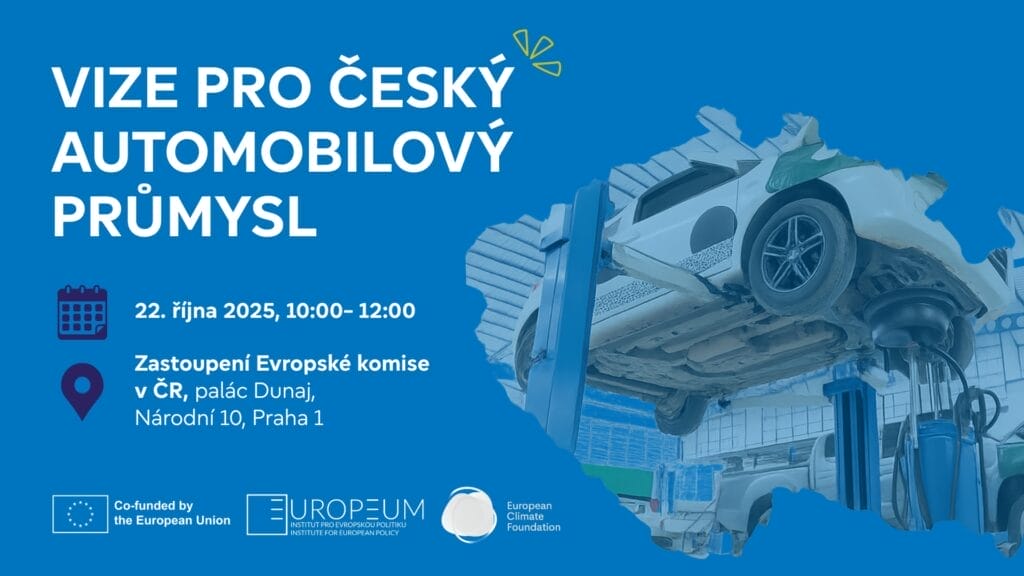
Kulatý stůl | Vize pro český automobilový průmysl

Ukrajinské reformy a česká zkušenost: co by mohlo Česko poradit Ukrajině na cestě do EU?

Promítání s debatou | Kino Europa: Život není soutěž, ale vyhrávám
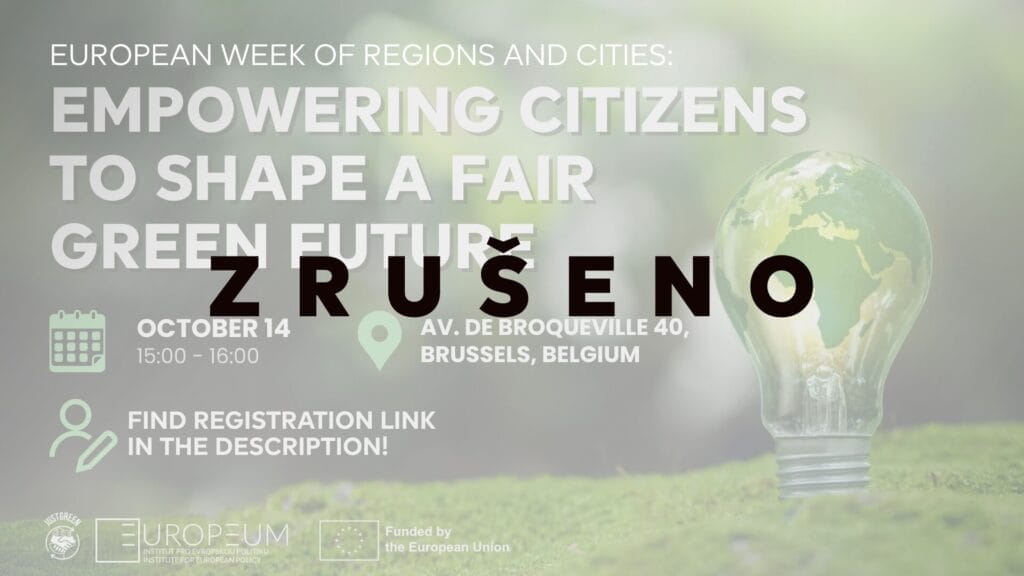
ZRUŠENO | Evropský týden regionů a měst | Posilování postavení občanů při utváření spravedlivé zelené budoucnosti

Ruské drony a stíhačky v EU – je Evropa v ohrožení? Co je nového v Evropském parlamentu?

Euractiv | Návrh nového rozpočtu EU je slibný, budí ale nejistotu, upozorňují experti

Euractiv | Evropa zblízka | Česká příprava na nový rozpočet EU

LRT | Babišovo vítězství se slaví v Kremlu – Evropskou unii oslabí další vzpurná země
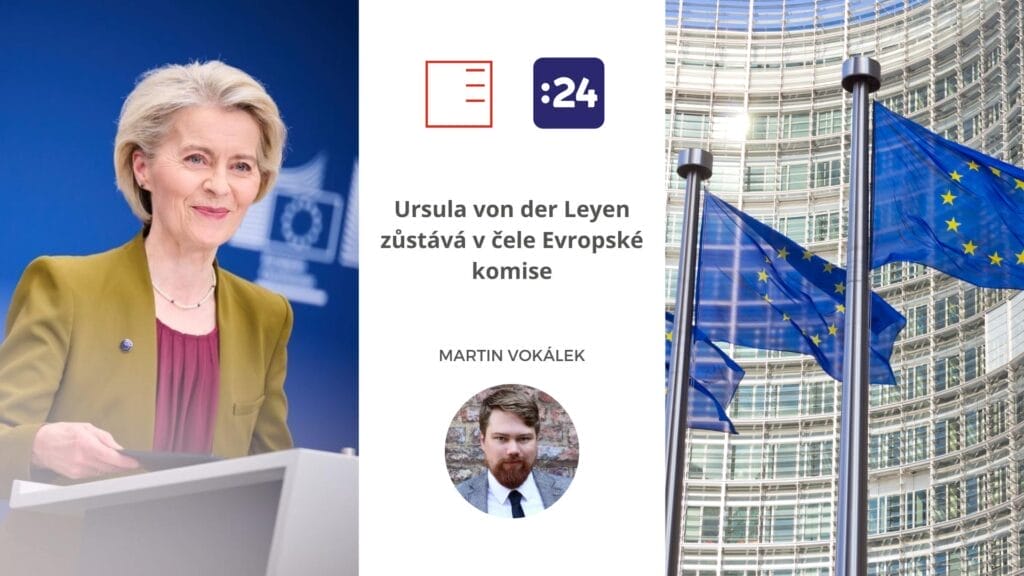
Svet :24 | Ursula von der Leyen zůstává v čele Evropské komise

EURACTIV | Křenek: Reforma rozpočtu EU je třeba. Je načase reflektovat, že se svět mění, jinak nám ujede vlak

Televizní Noviny | Vrací se spalovací motory do hry ?

JustGreen

Postoj České republiky k e-mobilitě, ETS2 a SCF v období po roce 2025
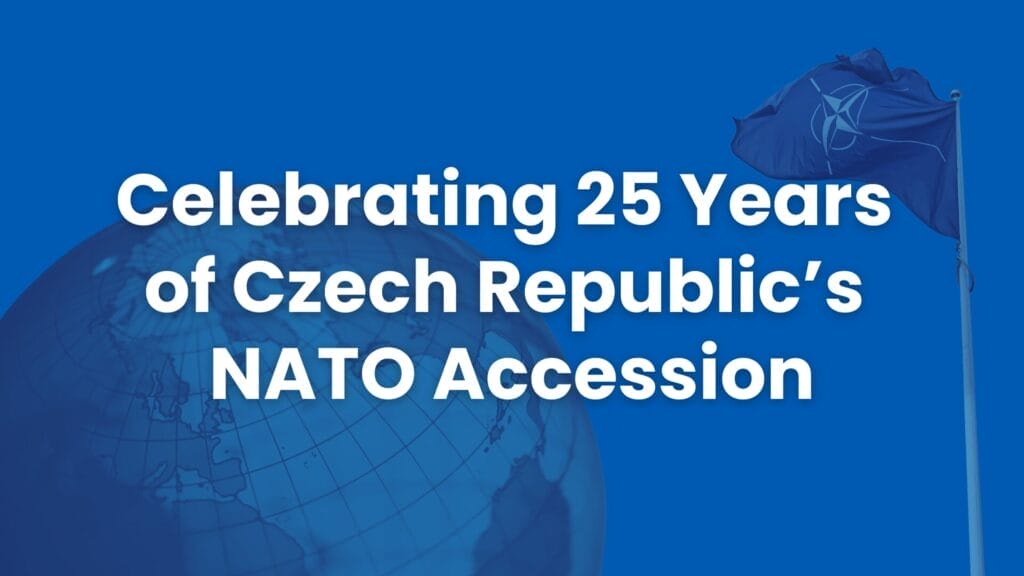
Celebrating 25 Years of Czech Republic’s NATO Accession

Pomoc nezávislým médiím a organizacím občanské společnosti při zajištění přístupu k spolehlivým informacím o Evropské unii a rozšíření EU na sociální média v Arménii.
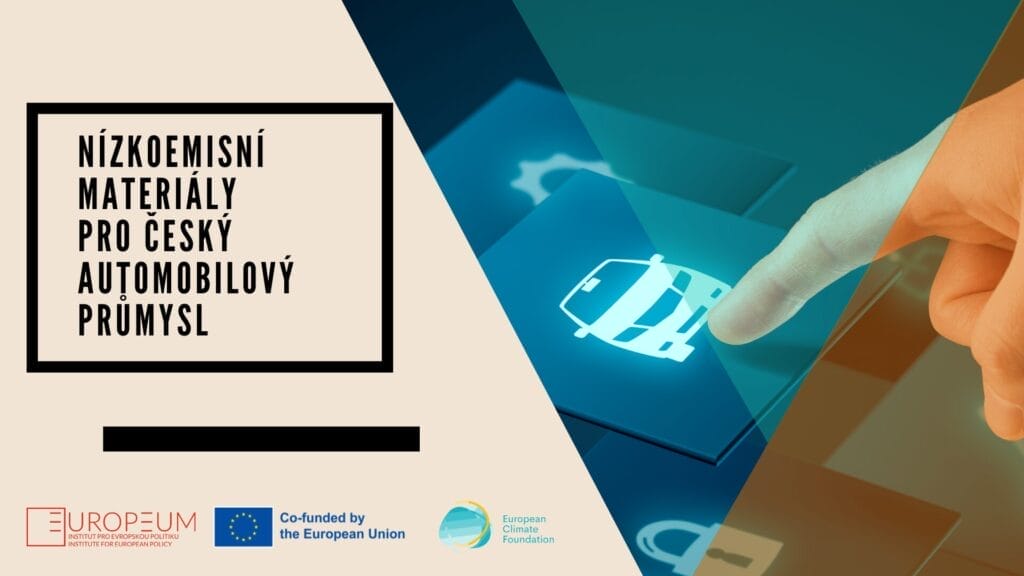
Nízkoemisní materiály pro český automobilový průmysl

Platform Revolution: utváření budoucnosti pro práci v EU a na západním Balkáně

Role Česka a konkurenceschopnosti EU, ekonomická bezpečnost, vztahy s USA a Čínou i strategie Global Gateway | Podkladový dokument Národního Konventu o EU

Report | Budoucnost transatlantických vztahů: mezi jednotou a nejistotou

Evaluační dokumenty | Překážky a příležitosti při zavádění směrnice o platformové práci

Blog | Internet a boj o politickou budoucnost Moldavska

Brožura | Město a vlny veder: Jak města bojují s horkem a jak se může Česko poučit?

Brožura | Uhlíková daň a sociální soudržnost v Česku
Sledujte nás na X
Poslechněte si náš podcast
Napište nám
Můžete nás kontaktovat vyplněním formuláře níže, e-mailem, telefonicky nebo prostřednictvím sociálních médií.
110 00, Praha 1













